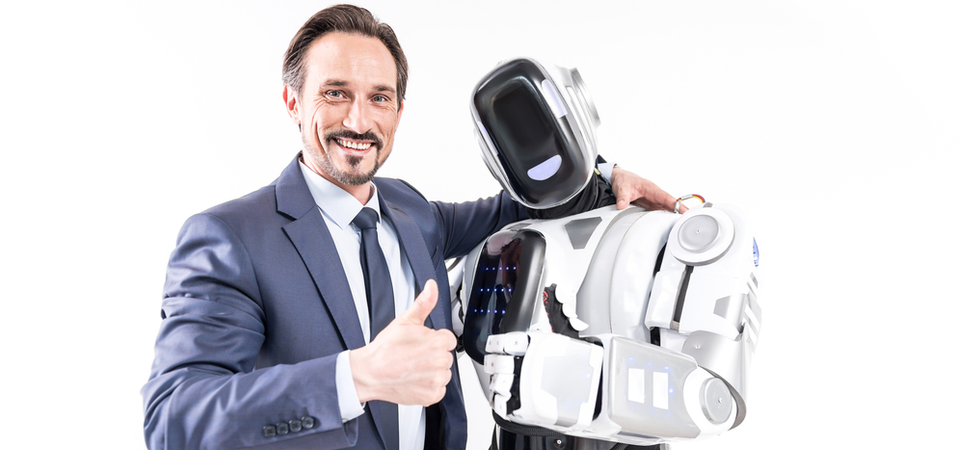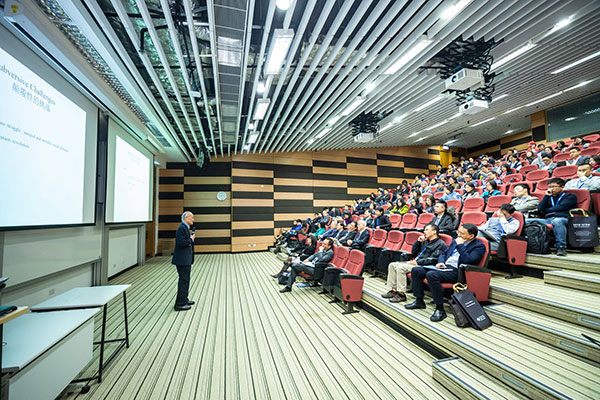
One of the top technology innovations to gain traction in the business world over the last five years is the use of artificial intelligence (AI) in business applications.
From developing predictive pricing to providing mass personalization on e-commerce sites, enterprises around the world are working to incorporate AI programs to make their operations more efficient and effective.
AI is quickly becoming an essential tool for businesses to maintain a competitive advantage, and its use in human resources functions is certainly no exception.
Of course, this doesn’t mean sentient robots are replacing all human functions (we’re likely decades away from producing a sentient AI).
The term AI has become a sort of umbrella term for a number of very different types of systems, but in general when we say “AI” we’re referring to computer systems that are capable of learning and performing tasks with minimal to no human interaction.
To learn, these systems are “fed” large amounts of data, from which they can identify patterns. Some AI systems interact with humans (such as chatbots, a popular software for performing front-line customer service), while others are more analytical in nature, and still, others can be used to manage processes automatically.
In terms of AI in HR, there are a few key applications with far-reaching implications for the future of the function. Let’s take a closer look at three of the top uses of AI in HR.
Personalized Employee Experiences
We live in an age where, thanks to AI, we can deliver highly personalized experiences. This is true whenever you visit websites, where both the content and the ads served to you are based on your previous browsing experience.
For example, have you ever searched online for a product and then seen ads for that same product on other websites? If you have, that’s likely thanks to an AI system that tracks your personal online activities and shows you ads catered to your interests, searches, etc. Some sites also cater to content based on similar data collected on you.
While employees don’t necessarily need to see ads, they do need to see content that’s pertinent to their roles. That could include content from a larger corporate repository that includes training information, company policies, and more.
Additionally, an AI system like what we use in Zenvoy can be used to connect employees with similar roles, interests, and backgrounds to each other. The main point here is that not every employee has the same needs, or needs to access the same information, or even needs to interact with the same colleagues, and AI can be used to create a highly personalized experience.
Automated Candidate Screening
Finding and hiring the right employees is an essential role for HR practitioners. In today’s job market, it’s not uncommon for firms to receive hundreds—if not thousands—of applicants for even a single opening. It’s an immensely time-consuming and sometimes overwhelming amount of work for your average HR pro.
Luckily, there are AI systems designed to surface better matches and weed out less qualified candidates.
You’ve probably heard about software that scans resumes and cover letters for keywords, but more sophisticated, AI-fueled systems can more effectively match resumes to job description while also controlling for human bias.
Identifying and Limiting Retention
Employee turnover is one of the biggest cost centers that organizations have to manage. Finding and training new employees can cost as much as 21 percent of their salary to replace.
In the past, it might have been clear to coworkers or a manager when an employee is about to give their notice. But that was more intuition (or hearsay) rather than an objective analysis. That’s where AI can come in and help.
There are always a number of signs employees are thinking about quitting—lower productivity, lower job satisfaction, etc.
AI can analyze a wide variety of data points that humans may not be able to objectively analyze, such as computer activity, internet browsing, and others, in order to identify people who might be preparing to leave.
AI can also conduct sentiment analysis of emails to detect changes in an employee’s tone, which could potentially signal shifts in job satisfaction.
These are just a few ways in which AI systems are transforming the HR function in organizations. In fact, we’re still in the early days of using AI to support HR, and the future is wide open for new and innovative uses.
Want to see Zenvoy’s AI-driven employee matching system in action? We’re happy to give you a demo and share the benefits of using Zenvoy to keep employees engaged.



